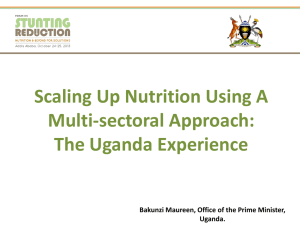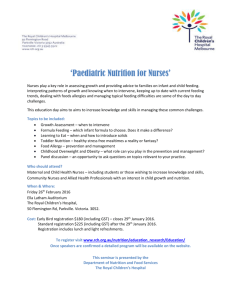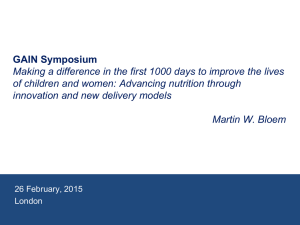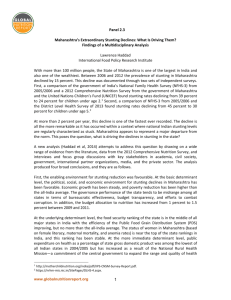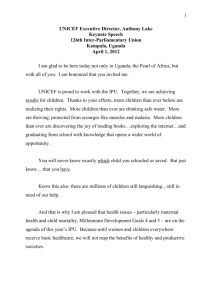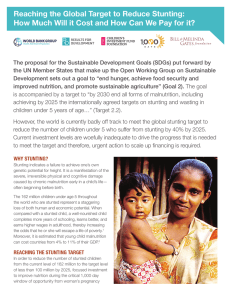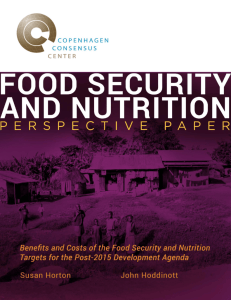Publication - World Vision International
advertisement
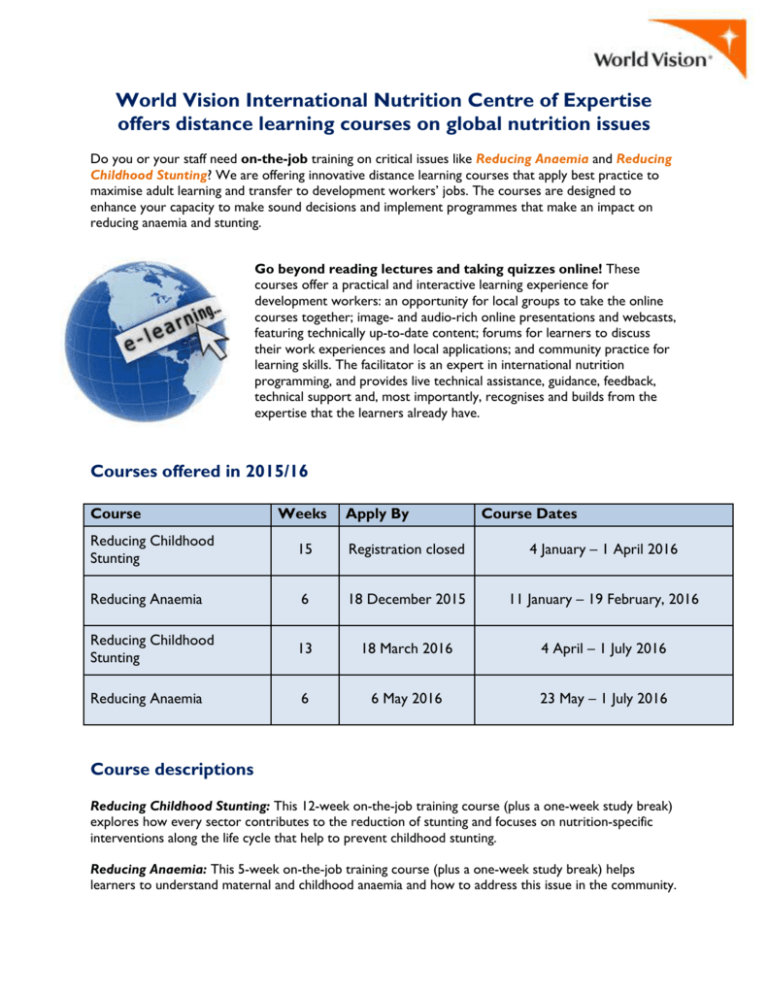
World Vision International Nutrition Centre of Expertise offers distance learning courses on global nutrition issues Do you or your staff need on-the-job training on critical issues like Reducing Anaemia and Reducing Childhood Stunting? We are offering innovative distance learning courses that apply best practice to maximise adult learning and transfer to development workers’ jobs. The courses are designed to enhance your capacity to make sound decisions and implement programmes that make an impact on reducing anaemia and stunting. Go beyond reading lectures and taking quizzes online! These courses offer a practical and interactive learning experience for development workers: an opportunity for local groups to take the online courses together; image- and audio-rich online presentations and webcasts, featuring technically up-to-date content; forums for learners to discuss their work experiences and local applications; and community practice for learning skills. The facilitator is an expert in international nutrition programming, and provides live technical assistance, guidance, feedback, technical support and, most importantly, recognises and builds from the expertise that the learners already have. Courses offered in 2015/16 Course Weeks Apply By Course Dates Reducing Childhood Stunting 15 Registration closed 4 January – 1 April 2016 Reducing Anaemia 6 18 December 2015 11 January – 19 February, 2016 Reducing Childhood Stunting 13 18 March 2016 4 April – 1 July 2016 Reducing Anaemia 6 6 May 2016 23 May – 1 July 2016 Course descriptions Reducing Childhood Stunting: This 12-week on-the-job training course (plus a one-week study break) explores how every sector contributes to the reduction of stunting and focuses on nutrition-specific interventions along the life cycle that help to prevent childhood stunting. Reducing Anaemia: This 5-week on-the-job training course (plus a one-week study break) helps learners to understand maternal and childhood anaemia and how to address this issue in the community. Comments from learners who completed NCoE e-Learning nutrition courses “The problem is very critical in our country . . . and the solution is easy and applicable.” “The course technology for me it is new and was very interesting.” “I practiced . . . and improved my team's capacity and also with Ministry of Health Staff.” “It challenged and empowered me at the same time.” “The course was very useful for me. It was my first online course during my professional career.” “I have learned a lot from course content and group discussion with multi-experienced staff members.” “I found this course very relevant and interesting. I highly recommend it to other colleagues who may wish to participate in future.” “E-learning worked very well for me. I wouldn’t have managed it if it was face to face course with all the busy schedule I have with other courses that I am currently doing that occupy all my weekends. The reading did not interfere with my work at all. I did all my lessons and assignment either during my lunch time or at home after work. The course was designed in such a flexible way. If you missed the webinar for example, you are able to get the recording with all the information so internet interruptions were not an issue to me. The online interactions made me feel like I was in the real class learning with the rest of the course mates.” “You only need access to a computer (you need to be computer literate); internet connection (I used a modem); some spare time, but not too much; determination; willingness to learn and share. You are better off if you have a group of fellow participants, but you can still do the course on an individual basis.” Who should take these courses? Development workers (from various sectors) applying evidencetested nutrition programming and practice, as well as other interested learners. Course facilitator Naomi Klaas (International Nutrition consultant, Dev Ed International Inc.) is a nutritionist with more than 15 years’ experience in programme management, technical support and capacity building. She has consulted with numerous NGOs throughout Africa, Asia and Latin America, including eight years with World Vision as a nutrition programme manager and strategy team leader. Her expertise lies in capacity building, and managing and evaluating multi-sectoral programmes for results in maternal and child health and nutrition. Course fee $350 USD per course. A limited number of scholarships are available upon request. How to register? Please download the application form and fill it in, save it with your name in the file name, and submit to Course Administrators, Carmen Tse and Loria Kulathungam, nutrition@wvi.org, before the course registration deadline (see table on previous page for details).
